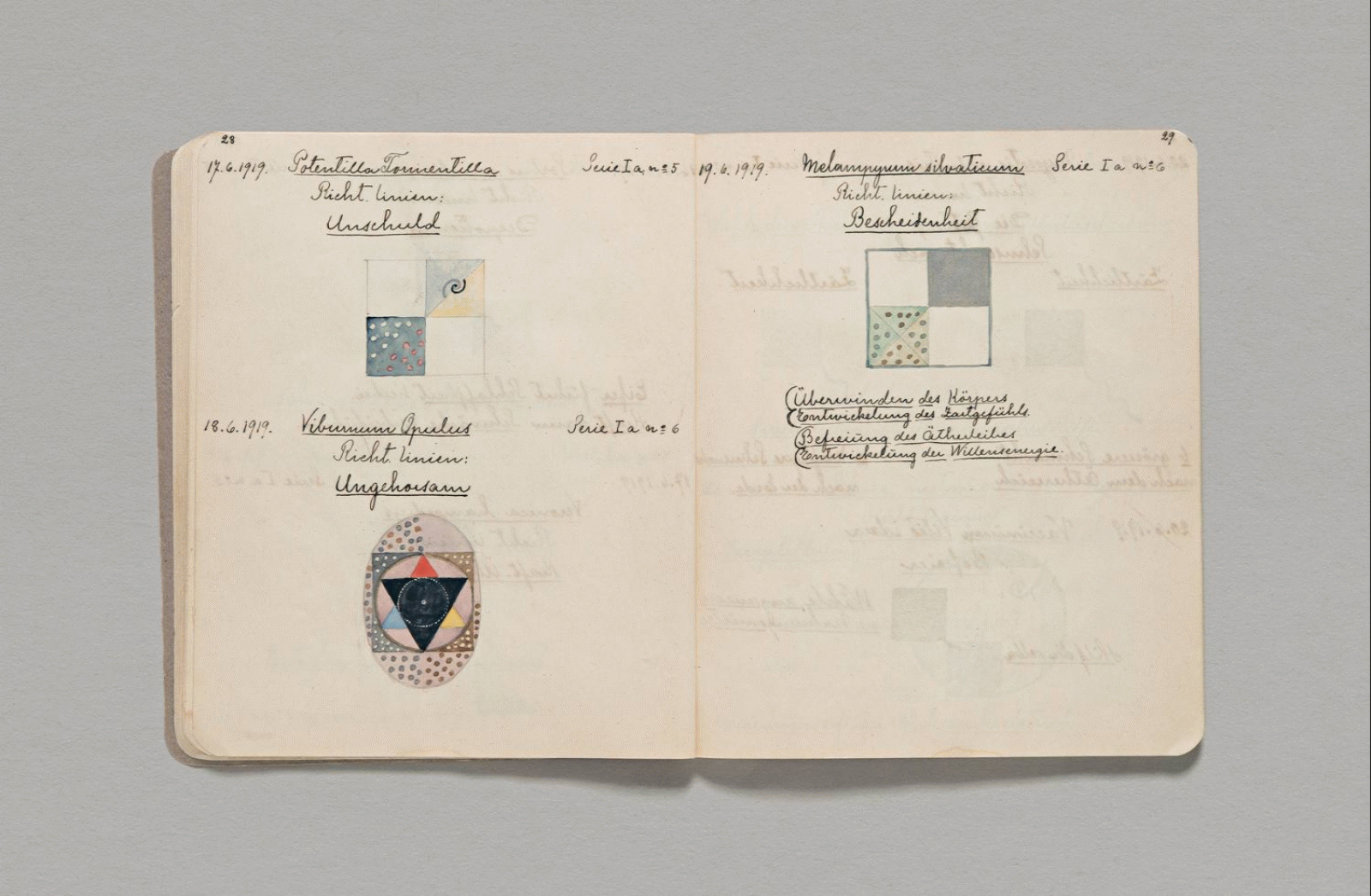4A Lab Seminar
Julia Voss: Flower Power: Hilma af Klint’s Revolutionary Botany

Hilma af Klint, „Blumen, Moose und Flechten“, 1919, HaK 588, The Hilma af Klint Foundation
Swedish painter Hilma af Klint was 44 years old when she turned her life upside down and broke with the academic painting tradition in which she had been educated: from 1906 she created numerous abstract paintings, in growing formats. Floral motifs as well as plant representations play an important role in her entire oeuvre, both in her naturalistic and non-figurative work. Biological processes such as growth or fertilization are also repeatedly taken up; a series from 1908 is entitled Evolution. When the artist began to work on her study Flowers, Mosses and Lichens in 1919, her pantheistic worldview reached a climax. Af Klint was convinced that the study of nature could contribute to the change of politics and society.
In her talk Julia Voss will explore the connections of politics, botany, and spirituality in Hilma af Klint's art.
Julia Voss published the biography Hilma af Klint: Die Menschheit in Erstaunen versetzen (S. Fischer Verlag) in spring 2020. The book was on the shortlist of the Leipzig Book Fair Prize and became a SPIEGEL-bestseller. She is honorary professor at Leuphana University in Lüneburg and holds a PhD in Art History from Humboldt University with her thesis Darwin's Images: Views of Evolutionary Theory, 1837-1874 (Yale University Press, 2010). She was Fellow at the Institute of Advanced Studies in Berlin, the Centre for Advanced Studies in Munich and the Max-Planck Institute for the History of Science. She was awarded the Otto Hahn Award by the Max-Planck Society and the Sigmund Freud Prize for Scientific Prose. She is currently Curator at the German Historical Museum in Berlin in the exhibition project The Political History of Documenta, 1955-1997.
22 September 2020
Online 4A_Lab Seminar
The event takes place online
Internal event
Notice
This event will be documented photographically and/or recorded on video. Please let us know if you do not agree with the Kunsthistorisches Institut in Florenz using images in which you might be recognizable for event documentation and public relation purposes (e.g. social media).


